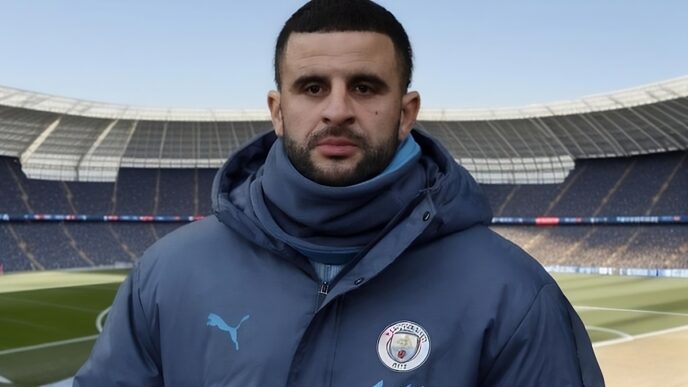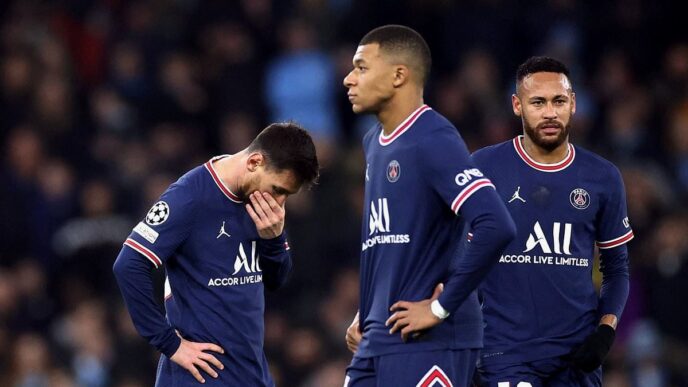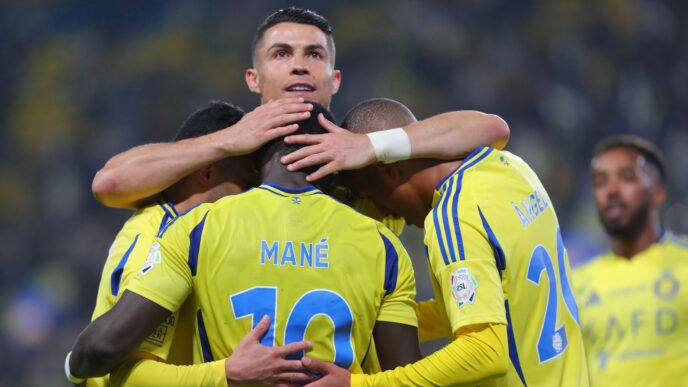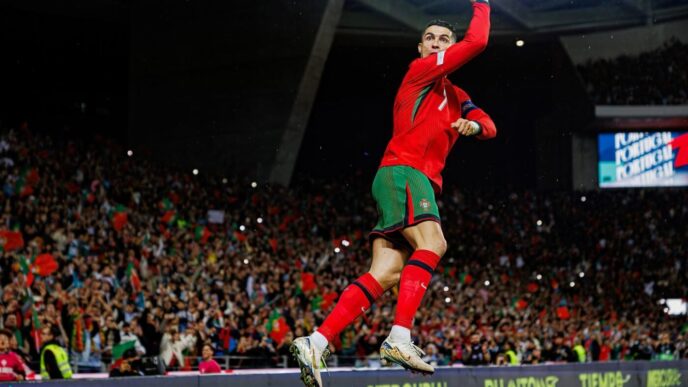The Spanish Supercup semi-final between Real Madrid and Mallorca has sparked outrage after allegations of harassment and assault surfaced. Women, including players’ wives, were reportedly targeted by local fans at the King Abdullah Sports City stadium in Jeddah. Criticism is now mounting against the Spanish Football Federation for prioritizing profits over safety.
Women and children harassed amid post-match chaos
The match, which ended in a 3-0 victory for Real Madrid, has been overshadowed by disturbing reports from fans and players’ families. Cristina Palavra, wife of Mallorca midfielder Dani Rodríguez, described a harrowing experience. “Men got very close to us, took photos without our consent, and harassed us,” she shared in an interview with Esports IB3. “We were with children, and there was absolutely no security.”
Natali, wife of Mallorca goalkeeper Dominik Greif, also faced similar treatment. Reports indicate that local fans formed corridors, mocking and physically harassing the small group of Mallorca supporters. Pere, a Mallorca fan who attended the match, recounted the distressing scene: “The women were the main targets—they were touched and groped as we tried to leave. It was humiliating and deeply unsettling.”
Criticism targets the Spanish Football Federation
The Royal Spanish Football Federation (RFEF) has faced severe backlash for hosting the Supercup in Saudi Arabia, a country criticized for its human rights record and gender inequality. Dani Rodríguez voiced his anger on Instagram, calling the incident “a disgrace.” He added, “This is not just about the money. Where was the organization to protect us?”
The RFEF’s controversial deal with Saudi Arabia, which began in 2020 and extends until at least 2029, has been lucrative but divisive. Many argue that the Federation prioritized financial incentives over the safety and dignity of players and fans. “This partnership is exposing us to unnecessary risks,” one critic noted.

Saudi Arabia’s growing role in sports under scrutiny
The incident has reignited debates about Saudi Arabia’s suitability as a host for international sports events. While the nation has invested heavily in sports diplomacy to reshape its global image, incidents like these cast a shadow over its efforts. Critics argue that the cultural and systemic challenges in the region were overlooked, leaving international visitors vulnerable in a situation that was entirely preventable.
One Mallorca supporter summarized the frustration: “Families should not have to endure this kind of treatment for a football match. It’s clear the Federation didn’t adequately prepare, and this is the result.”
Calls for accountability and change
As outrage grows, calls for an investigation into the events at the King Abdullah Sports City are intensifying. Fans and players have demanded that the RFEF address not only the immediate failures in security but also reconsider the broader implications of staging the competition in Saudi Arabia. “This isn’t just about football—it’s about basic human dignity,” said a Spanish sports journalist.
Some voices within the football community are calling for stricter protocols for international tournaments, ensuring the safety of all attendees, especially in regions with differing cultural norms and legal protections. Others are questioning whether financial deals like the one with Saudi Arabia are worth the reputational damage they may cause.
What’s next for the Spanish Supercup?
The controversy surrounding these allegations could force the RFEF to re-evaluate its partnership with Saudi Arabia. While the lucrative nature of the deal has been emphasized in the past, the backlash from players, fans, and human rights advocates could push the Federation to prioritize safety and ethical considerations in future agreements.
As investigations unfold, the incident serves as a stark reminder of the challenges inherent in globalizing football. For now, the focus remains on securing accountability and ensuring that the safety of fans, players, and their families is never compromised again.














